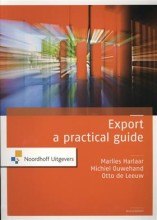Summary: Inleiding Psychologie Ii
- This + 400k other summaries
- A unique study and practice tool
- Never study anything twice again
- Get the grades you hope for
- 100% sure, 100% understanding
Read the summary and the most important questions on Inleiding Psychologie II
-
1 Memory & Attention & Conciousness
This is a preview. There are 15 more flashcards available for chapter 1
Show more cards here -
How do psychologists see the mind as a computer?
They see the mind as a computer, a processor of information where information can be entered from one pathway like a keyboard (sensory store) or from another pathway information can be taken from the hard drive (long-term memory) -
What are the three type of memory stores (geheugenopslag) in the brain and how do they differ from each other in function, duration and capacity?
There are three types ofmemory stores;
Sensory memory - unconcious
Short-term working memory - concious
Long-term memory - unconcious- In sensory
memory only a few units are kept andinformation which doesn't getconcious attention gets lost.
- In short term
working memory, items who don't getattention are lost withinseconds and 7+ or -2 units can be kept at the same time
- In long term
memory ,information could possibly be kept for aninfinite duration with aninfinite capacity
- In sensory
-
Why is long term memory considered important?
Long term memory is considered important because it's the stored representation of all knowledge. Long term memory allows us to recognise a taste, remember the words to our favorite song and lets us remember how to spell those words.
Information in the Long Term Memory stays dormant until it's retrieved by the working memory. -
What did brain imaging find in relation to glucose and executive functioning processes?
Brain imaging scans found that higher executive processes use up more glucose than less demandful processes like automatic processes. -
What two processes can mental processes (mentale processen) be divided in and what is considered dual processing?
Dual processing is the usage of both effortful and automatic thinking used mainly during problem solving. processes - more often concious
EffortfulAutomatic processes - oftenunconcious -
What is meant with effortful processing and what type of speed thinking is that?
Effortful processes areprocesses thatrequire mentalresources likelearning to drive orlearning to read. They can be moreautomatised with lots ofeffort .Effortful thinking is slow thinking. It requires time andenergy and isconscious . It could be analytic -
What is meant with automatic processing and what type of speed thinking is that?
Automatic processes are processes that don't require a lot of mental resources and no short-term memory.
Automatic processes are considered fast thinking, intuitive and associative thinking. -
What is the 4 part hypothese about automatic thinking process?
- Automatic thinking occurs without attention or awareness
- Automatic thinking doesn't interfere with executive processes
- Automatic processes do not improve with practise
- Automatic processes are not influenced by intelligence and education
-
What is the stroop interference effect an example of and how does it compare to the wisconsin card sorting task?
Thestroop interference effect is an example of beingunable toshut downfast thinking - even when it leads to thewrong answer .
The amygdala plays a role in the fast thinking, which is also used in the Wisconsin card sorting task where the rules aren't explicitly told and is only provided feedback -
What is the similarity between the stroop interference and the ponzi & muller-lyer illusion?
In both cases the automatic processing of the fast system is responsible for the mistakes or visual illusion.
- Higher grades + faster learning
- Never study anything twice
- 100% sure, 100% understanding































